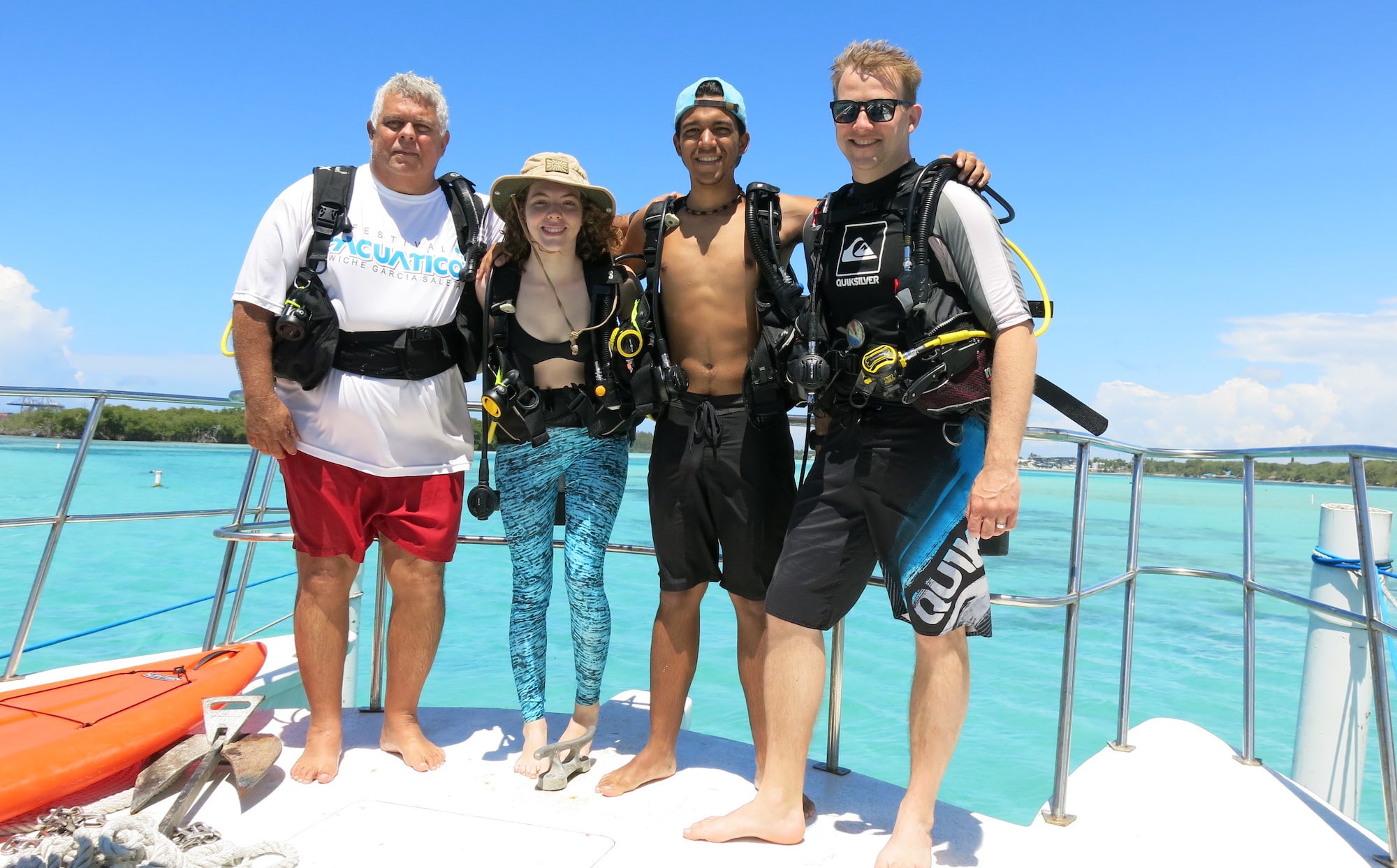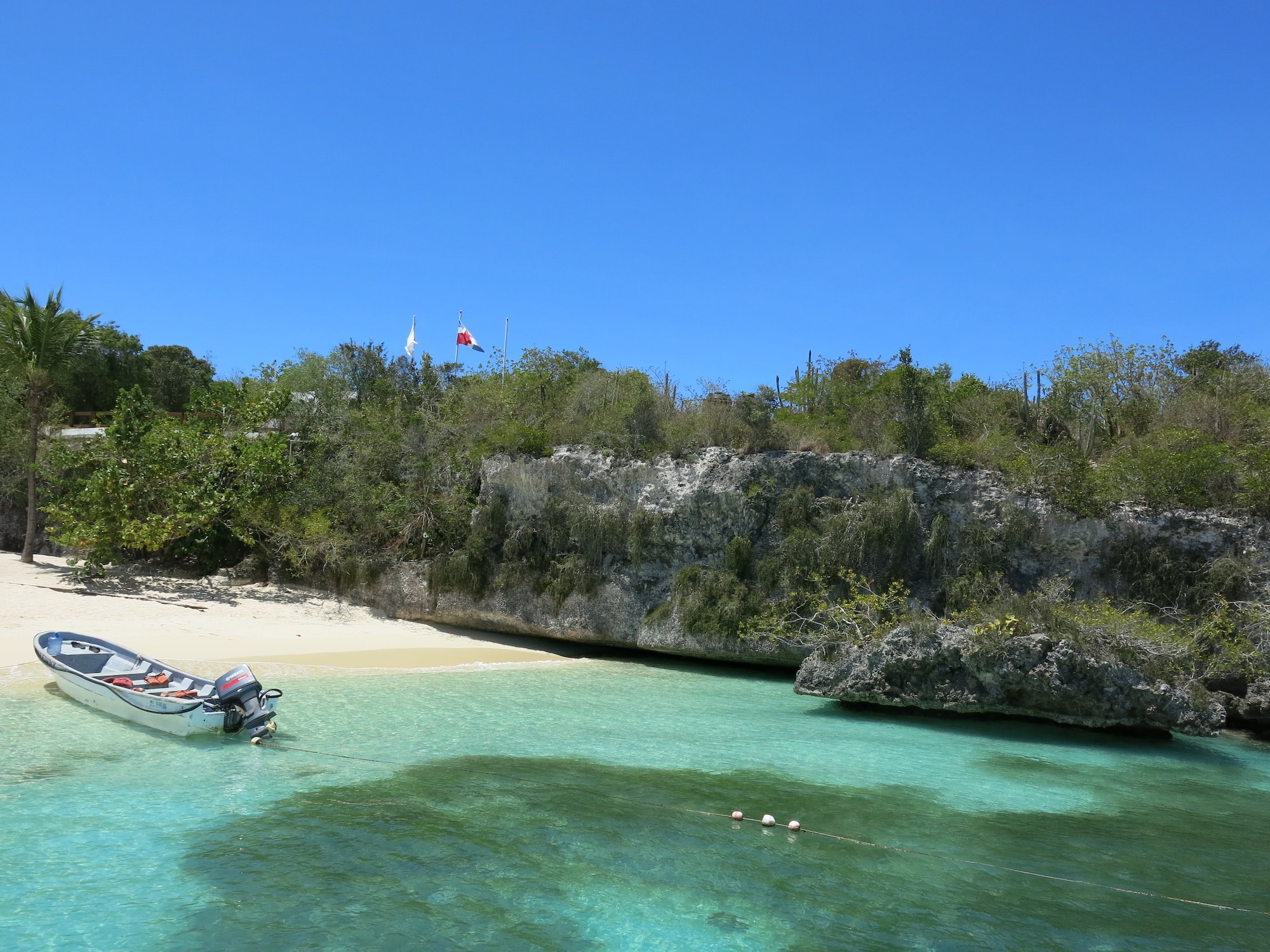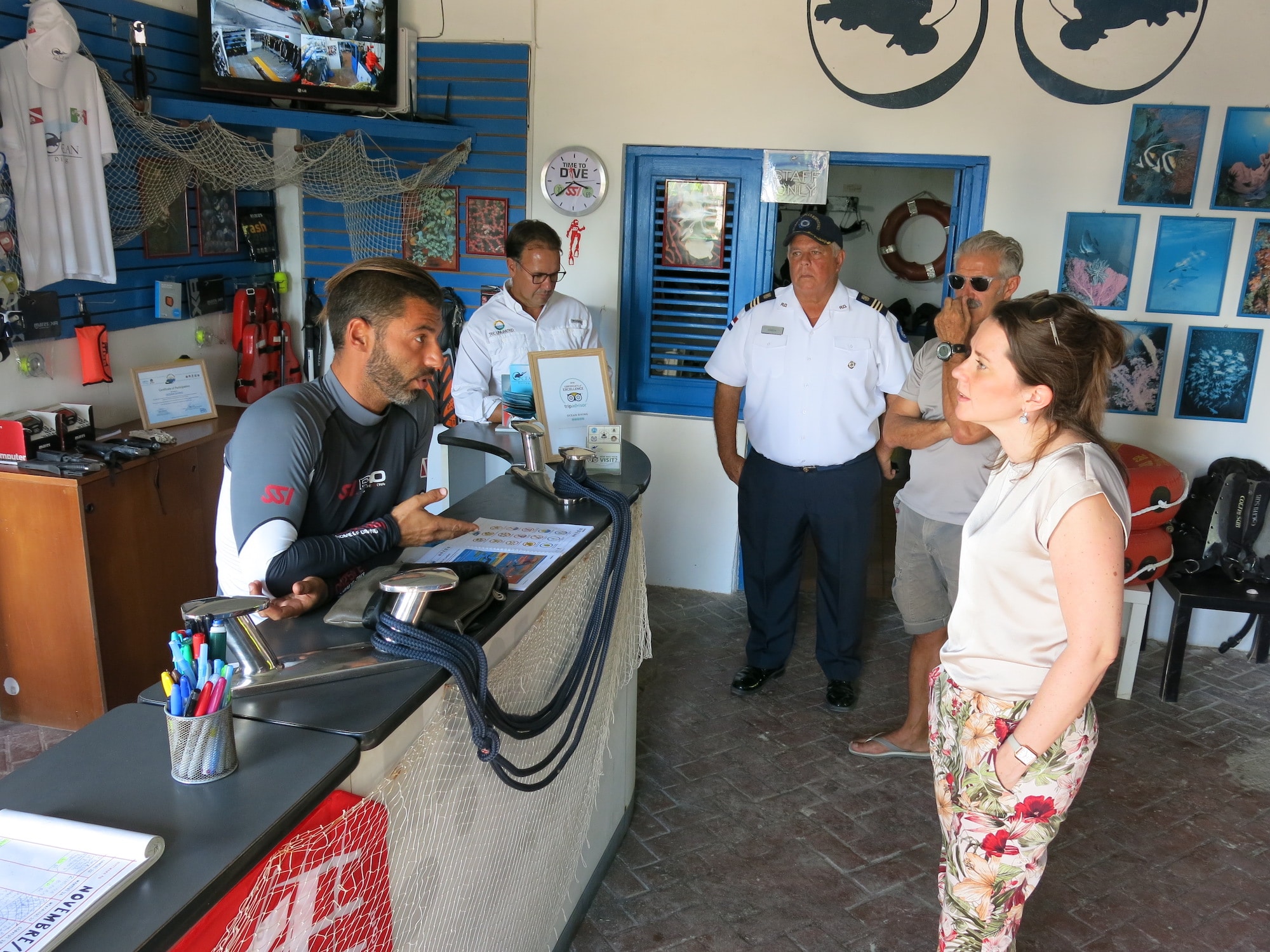Marine Life & Conservation
New conservation initiative launched in the Dominican Republic

TUI Care Foundation and Reef-World Foundation empower local Youth Ambassadors to protect coral reefs in the Dominican Republic.
The TUI Care Foundation and The Reef-World Foundation are launching an initiative to help protect coral reefs in the Dominican Republic. The partnership will encourage environmental stewardship by bringing together key members of the community to focus on the protection of these sensitive and fundamental ecosystems.

Catalina Island. Photo: The Reef-World Foundation
Over 300 people from a variety of local reef-based businesses will receive specialised training on how to work more sustainably. More than 65,000 tourists will receive information on coral reef protection and over 2,000 members of the community will also learn about reef protection through the environmental activities of Youth Ambassadors.
With 20% of the Dominican Republic living in extreme poverty and 80% of the island’s 10 million inhabitants living on the coast, coral reefs are an important source of food and income. The ocean supports half of all livelihoods, mainly through fisheries and tourism, but these sensitive marine ecosystems are seriously under threat. As well as the damaging impact of climate change, activities like intensive scuba diving, snorkelling and sailing can directly damage the coral, which in turn impacts its delicate ecosystem.
The initiative is part of the international TUI Junior Academy programme and will deliver tailored marine environmental education courses to Youth Ambassadors, inspiring them to champion coral reef conservation projects and lead activities within their local communities. As part of a multi-faceted approach to protecting coral reefs, it will also introduce environmentally friendly guidelines to promote sustainable diving and snorkelling. This will help to reduce any local deterioration of the coral reef and build its resilience to wide-scale global challenges.
In partnership with Reef Check Dominican Republic and the Ministry of Environment of the Dominican Republic, the project aims to significantly reduce any direct detrimental impact to coral reefs by building awareness of, and facilitating, environmentally friendly best practices for diving and snorkelling activities.

Reef Check Dominican Republic. Photo: The Reef-World Foundation
Thomas Ellerbeck, Chairman of the Board of Trustees of the TUI Care Foundation, said: “The Dominican Republic is surrounded by extraordinary coral reefs which constitute a key component of the island’s unique natural heritage and biodiversity. Local economic activities, such as fishing, and marine life in general, rely on strong, healthy reefs. We are very excited to be launching this new project with Reef-World that brings the local community together and puts education at the very centre of future environmentally sustainable solutions.”
Educational leaders, local resource managers and representatives of reef-based tourism in the Dominican Republic will be empowered to deliver tailored marine educational programmes to young people, which will improve their awareness of environmental issues and help them understand how they can protect the environment. Working with local teachers and the Ministry of Education, the initiative will also strengthen the marine environmental education content within the national curriculum. As a result, this project aims to help to strengthen livelihoods, reduce poverty and protect the environment in the Dominican Republic.

Meeting a Green Fins Dive Centre. Photo: The Reef-World Foundation
JJ Harvey, Director at The Reef-World Foundation, said: “As well as being a precious natural ecosystem, the Dominican Republic’s coral reefs provide food and livelihoods for many people in the country and so represent a valuable financial asset worth protecting. By building the capacity of the marine tourism industry to follow best environmental practice, our Youth Ambassador Coral Reef Conservation Programme will engage over 1,000 teenagers across 15 schools with the ripple effect reaching approximately 1,800 community members and over 2,000 family members. We’re proud to be working with the TUI Care Foundation to empower citizens of the Dominican Republic to protect their natural assets for many years to come.”
The Reef-World Foundation also runs the Green Fins initiative in the Dominican Republic, which is implemented through a network approach led by Reef Check Dominican Republic in partnership with the Ministry of Environment and Natural Resources, the Auxiliary Navy, the Coastal Biodiversity and Tourism project and local community and conservation group CEBSE.
To find out more, visit www.tuicarefoundation.com and www.reef-world.org.
Marine Life & Conservation
Paul Watson Released as Denmark Blocks Japan’s Extradition Bid

Renowned anti-whaling activist Paul Watson has been released from custody in Greenland after spending five months in detention. Denmark’s Justice Ministry rejected Japan’s request for his extradition, citing insufficient guarantees that his time already served in custody would be credited against any potential sentence.
The 74-year-old Canadian-American was arrested on July 21 in Nuuk, Greenland’s capital, when his ship docked to refuel. His arrest was based on a 2012 Japanese warrant related to a 2010 encounter in Antarctic waters. Japan alleged Watson obstructed operations and caused damage to a whaling research ship during efforts to disrupt illegal whaling. Watson has consistently denied these claims, maintaining his commitment to marine conservation.
Denmark, which oversees extradition matters for Greenland, concluded that while the legal conditions for extradition were met, the lack of assurances from Japan regarding time-served credit made extradition untenable.
In a video shared by his foundation, Watson expressed gratitude and relief, saying, “After five months, it’s good to be out… and good to know they’re not sending me to Japan.” He added that the most difficult part of his time in custody was being separated from his two young sons.
Watson is a pioneering figure in marine conservation, known for founding the Captain Paul Watson Foundation in 2022 after decades of activism with the Sea Shepherd Conservation Society. His bold efforts to defend marine life have earned him widespread support, including from celebrities and conservationists. His work has also been featured in the acclaimed reality TV series Whale Wars.
Watson’s lawyer, Jonas Christoffersen, praised the decision, stating, “We are happy and relieved that Paul Watson is now free.” He added that Watson is eager to reunite with his family and continue his vital work.
The arrest occurred while Watson’s vessel, the M/Y John Paul DeJoria, was en route to the North Pacific with a team of 26 volunteers to intercept a Japanese whaling ship. His foundation described the arrest as politically motivated and emphasized that Watson’s actions were focused on ending illegal whaling practices.
Japan resumed commercial whaling in 2019 after leaving the International Whaling Commission, asserting that whale meat is a cultural tradition. Conservationists, however, continue to challenge these practices, highlighting their impact on marine ecosystems.
Despite the challenges, Watson remains steadfast in his mission to protect marine life and bring attention to whaling practices. His dedication to ocean conservation has made him a globally respected advocate for the environment.
Marine Life & Conservation
12 Days of Zero-Waste Fish-mas

This holiday period, the Marine Conservation Society, the UK’s leading ocean membership charity, invites you to make some simple changes to eating fish this Christmas to help our seas.
Dr Kenneth Bodles, Head of Fisheries and Aquaculture at the Marine Conservation Society, said, “During the festive season, our consumption increases, but so does waste. Sustainability isn’t just about where food comes from – it’s also about how you use it. By reducing waste and making the most out of your seafood, you’re not only taking steps to be more ocean-friendly, but can also help to cut costs during what is often one of the most expensive times of the year”.
The Marine Conservation Society has compiled twelve tips on how to consume seafood sustainably with zero-waste this Christmas:
Buy whole fish instead of fillets
Instead of fillets, consider buying whole fish such as salmon, hake, or lemon sole. By adopting a “nose to tail” approach with cooking, whole-baked fish not only feeds a crowd, but also helps to minimise waste and maximise sustainability by using up every part of the animal, including bones, skin, and fat.
Make fish stock
Leftover fish bones or shells can be put to good use by boiling them to make a nourishing fish stock or bisque. This can be frozen and preserved for later use and makes for a flavourful base in a soup.
Make your own fish pâté
Avoid waste by turning leftover fish, such as smoked mackerel or salmon, into a delicious pâté by blending with cream cheese and lemon. Perfect when paired with crackers.
The sustainability of salmon and mackerel varies depending on where and how it is caught or farmed. For more information on green-rated options, check the charity’s Good Fish Guide.
Buy frozen
By purchasing seafood that is frozen or vacuum-packed, this helps to reduce waste by extending the shelf life of your food.
Fish pie
If you’re wondering what to do with leftover cooked fish, why not opt for a classic fish pie with mashed potatoes, leeks, and a cheesy sauce? A sure crowd pleaser on Boxing Day.
Use the head
Don’t forget the fish head! The meat is incredibly tender and flavourful. The charity recommends a cod’s head curry or recreating Fallow’s renowned cod’s head in siracha butter.
By stretching your ingredients further, not only is this a more sustainable way to enjoy seafood, but also cost-effective by repurposing leftovers and cooking creatively.
Boxing Day brunch
Mix leftover kippers or smoked salmon with scrambled eggs for a tasty, zero-waste, Boxing Day brunch.
For best choice, make sure you buy kippers, or herring, from the North Sea and the North Irish Sea.
Zero-waste storage
A top tip from the Marine Conservation Society to avoid waste is freezing fish offcuts to save for future use.
Crisp up the skin
Even leftover fish skin can be turned into a quick savoury snack by crisping it up in an air fryer with a little olive oil and salt.
Anchovies two ways
Leftover anchovies can either be blended with butter to make a delicious anchovy butter or tossed into pasta for a hit of umami flavour.
The charity recommends opting for anchovies caught in the Bay of Biscay for best choice.
Fishcakes
For an easy, zero-waste meal, leftover seafood trimmings can be mixed with mash and fried in breadcrumbs to make fishcakes.
Pickled mussels
Try pickling mussels in 1:1 vinegar and water, with a dash of sugar for a sustainable, zero-waste snack that can be enjoyed well beyond the festive season.
Mussels farmed in the UK are a seafood superhero. Grown using low-impact methods and harvested by hand, they get all the food they need from the sea around them. This makes them one of the most sustainable, ocean-friendly, and cost-effective seafood options.
Players of People’s Postcode Lottery have raised £6.6M towards the Marine Conservation Society’s vital work in making seafood more sustainable.
Laura Chow, Head of Charities at People’s Postcode Lottery, said: “Fish is a festive favourite for many, but making sustainable choices when it comes to how we buy and eat seafood makes all the difference for our ocean. Support from players of People’s Postcode Lottery has helped the Marine Conservation Society further its sustainable seafood work, so that we can all enjoy healthier, better protected seas.”
The Marine Conservation Society encourages you to make sustainable seafood choices a year-round habit, not just for Christmas. To check how sustainable the seafood on your plate is, you can visit the charity’s Good Fish Guide. The Guide helps consumers and businesses identify the most sustainable seafood using a simple traffic light system, based on where and how species are caught or farmed. Green is the best choice, amber means improvements are needed, and red indicates fish to avoid buying.
Zero-waste gift idea
Why not embrace a zero-waste Christmas by gifting a membership to support marine conservation? It’s a meaningful, low-waste gift that helps protect our ocean for generations to come. Memberships start from as little as £5 a month – the price of a sandwich and drink from your local coffee shop.
Find the latest sustainable seafood advice for wild-caught and farmed seafood on the Good Fish Guide, downloadable to your phone from www.mcsuk.org/goodfishguide.
-

 News2 months ago
News2 months agoIconic SS United States to become the World’s Largest Artificial Reef
-

 News3 months ago
News3 months agoBook Review – 52 Assignments: Underwater Photography
-

 Gear News3 months ago
Gear News3 months agoDYNAMICNORD – New German diving brand enters the British market
-

 News3 months ago
News3 months agoExploring Cenote El Pit: A Diver’s Dream
-

 Gear News3 months ago
Gear News3 months agoTry BARE drysuits (and maybe even win one!) this Friday with Sea & Sea at North West Dive Fest
-

 Marine Life & Conservation3 months ago
Marine Life & Conservation3 months agoBook Review: Coral Triangle Cameos
-

 Blogs2 months ago
Blogs2 months agoDive the Egyptian Red Sea this Autumn with Regaldive
-

 News3 months ago
News3 months ago2024 Ocean Art Underwater Photo Competition Announced



